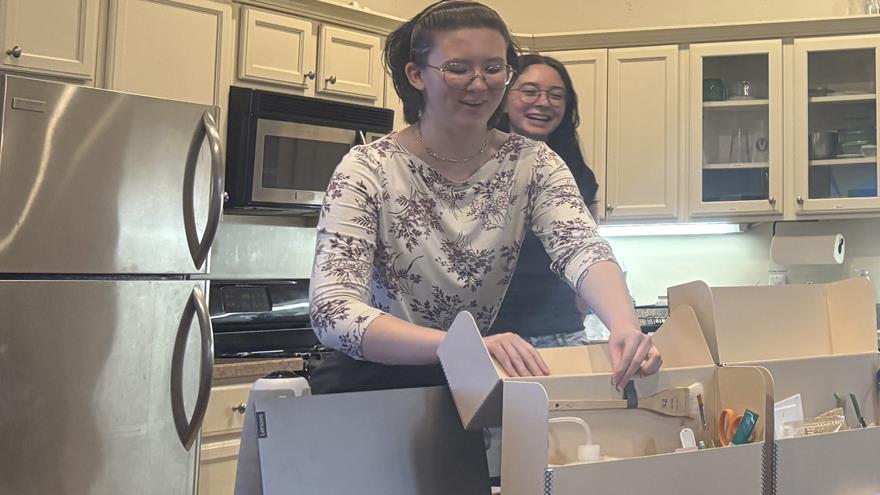What I'm Reading: Sandra Kirschenmann

- Drexel Co-ops Learn the Art of Conservation and Collections Care
- How Drexel University is Seen in ‘Philadelphia Revealed’
- ‘Philadelphia Revealed,’ From the Atwater Kent Collection at Drexel Reflects 350 Years of Philly History
- Drexel Awarded $850K Grant from The Pew Charitable Trusts To Help Make Atwater Kent Collection Accessible to Public

Associate Vice Provost for Drexel University Sacramento Sandra Kirschenmann blames actor Daniel Day-Lewis for her most recent reading selection. Day-Lewis was so magnificent in his role as the title character in “Lincoln,” she said, that she felt it was time to dust off Doris Kearns Goodwin’s The Team of Rivals: The Political Genius of Abraham Lincoln, a book that had existed unopened on her bookshelf for a year.
Why did you choose this book and what is it about?
I have known about this book for some time, and I’m a big fan of Doris Kearns Goodwin. I see her on “Meet the Press” on Sundays. She often speaks on the character and the personality of American presidents, and her take on it is this straightforward, matter-of-fact kind of discussion like you might have in your backyard over the fence with your neighbor. She talks about them like it’s someone she knows. She explores what Lincoln is like as a person and not just what we all learned about him in fourth grade.
I remember people were talking about this book when it first came out (2006) but it’s been sitting on my shelf ever since. Then when I saw the movie “Lincoln,” it really kindled my interest in Lincoln as a person. Daniel Day-Lewis brought the character so to life and Lincoln became so intriguing to me. I was interested to know how this gangly man from the backwoods of Kentucky with no formal education could so brilliantly become such a political strategist.
What do you find particular important/ enjoyable about the book?
This book shows how every experience and every personality trait shaped this man. It was interesting to be reminded that he used to walk miles to get his hands on a book—in the backwoods of Kentucky, books were not plentiful. He would walk 6, 7, 8 miles if he heard someone had a book and it didn’t matter what it was about or who wrote it, he needed to read it. He read everything he could get his hands on as a young man, and that really strengthened his ability to learn and become aware of things outside of what he would understand.
I enjoyed learning more about his incredible political strategy. In 1860, it was assumed that William Henry Seward was going to be the Republican Party nominee. That was when Lincoln’s political genius came into play. What Lincoln recognized over the years is that politicians have supporters—and they also have enemies.
Lincoln made himself known in the states where Seward had enemies to make sure he was recognized; he strategically lined up these states and picked them off one by one.
Lincoln was the right man at the right time after an incredible self-directed political strategy of immense proportions. It makes you think about ambition and ego—it can be positive and negative at the same time, but you have to have enough ego to believe wholeheartedly that you are the right guy for the job.
So far, has it lived up to your expectations?
Yes and more so. I can’t read much of it because I am so busy and I don’t get to spend hours reading. And, this is not the sort of book that you would keep by your bed and just read a chapter every night. You need to be fully engaged.
The part I’m reading now is just after he wins the election. Now I will see him struggle with the Civil War and slavery. I imagine my impression of him will only rise as I watch him go through this horrible, incredible war and I know I’ll wonder where this country would have been had he not been the president during that time.
Is there a passage or a quote you find particularly interesting?
As the committee members left (Abraham Lincoln's house after delivering the official notification of the presidential nomination), Mr. Kelley of Pennsylvania remarked to Schurz: "Well, we might have done a more brilliant thing, but we could hardly have done a better thing."
What this quote says is that there were so many unknowns as far as who Lincoln really was. When you think about the way people run for office today and how much scrutiny there is of them by the media, that didn’t happen to Lincoln. Nobody knew him. Even the party bosses didn’t know him. It’s just so interesting that they came away so impressed after their first meeting with him.
In This Article
Drexel News is produced by
University Marketing and Communications.